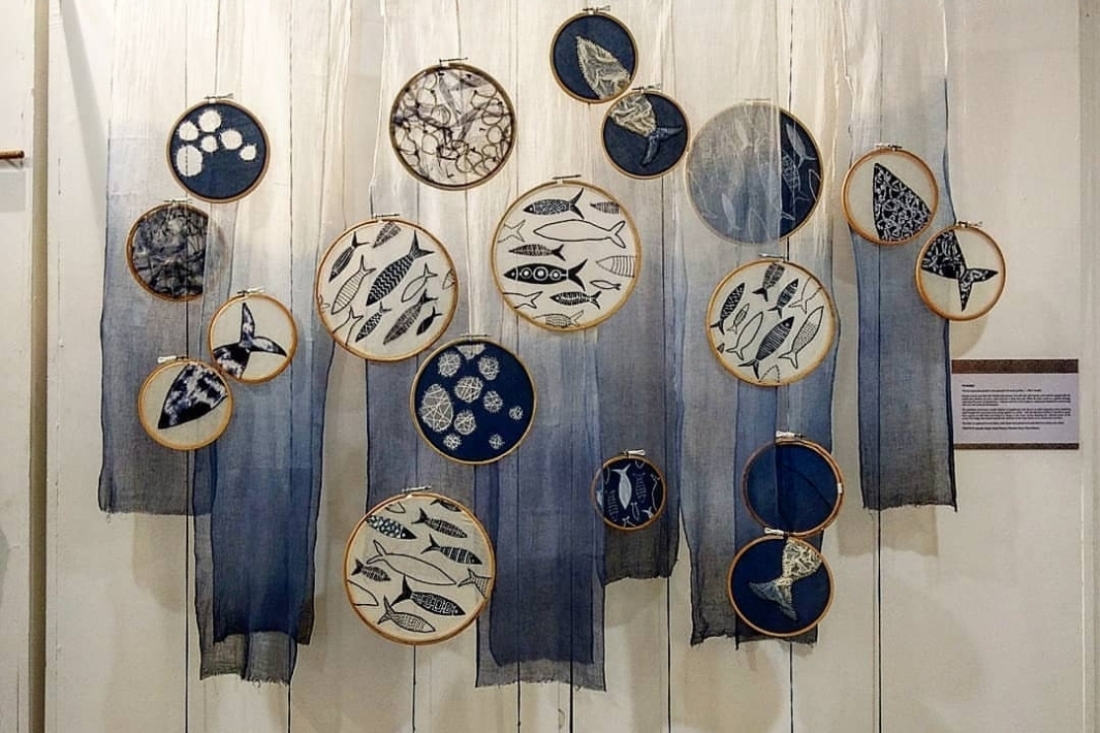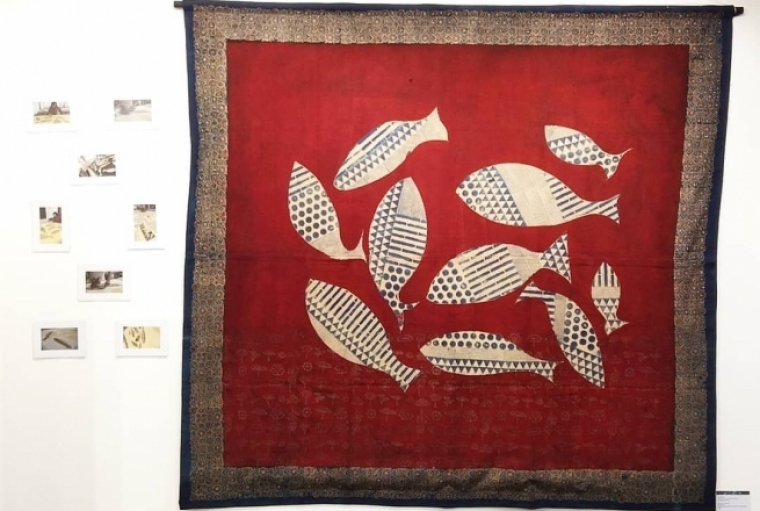

Gandhi’s timeless ideologies have been at the core of Delhi-based visual artist Shelly Jyoti’s art practice for more than a decade now. Using khadi as her canvas, Ajrakh printing and dyeing as her palette and intricate needlework her brush strokes, Jyoti continues her exploration of Swaraj in her new show.
Using the motif of fish, both as individual entity and as a collective force, Jyoti explores the biggest challenge that faces mankind today – the disconnect between economic development and ecological well-being. “Ecology is understood both as man’s outer and inner environment. Economic progress of the kind being pursued in India and elsewhere in the world has become an end in itself. It is divorced from ethics, and righteousness. It stands in conflict with man’s responsibility towards ecology, nature, his own community and other communities of the world.”

In Bound by Duty: An Idea of Swaraj and Collectiveness, she uses the imagery of micro-organisms in water, such as trillions of tiny fishes collaborating together, displacing water to create oceanic currents, waves and turbulence in an undersea environment. She examines the idea of ‘collectiveness’ and ‘collective impact’ that can bring about social change with evolved and spiritually self-aware communities.
The exhibition includes a 80-feet-long site-specific installation of four panels, 30 new Ajrakh art scrolls on khadi, multimedia spoken word poetry and a short.
“These works are inspired by Gandhi’s seminal anti-imperialist text Hind Swaraj written in 1909. This exhibition examines elements of Gandhi’s critique of modern civilisation, noting his emphasis on an evolved ethical and spiritual self for creating an alternative perspective of a better world. To bring social revolutions, for creating peaceful societies, the idea of self-rule or self-control needs to be experienced uniquely by each individual, and ultimately achieve self-transformation,” says the artist.
Jyoti focuses on Gandhi’s ideology of nation building for creating moral and peaceful societies, relevant even in the 21st century. Inspired by the idea of social responsibility, she tries to understand the meaning and importance of the relationship between self, societies and social transformation in this fast-paced technology driven world. “I wished to understand the ways in which a modern civilisation such as India, that has achieved so much economically, and has become such a significant culture and country globally, could still connect with seventy percent of her rural population that still remains illiterate. It is in this context that I eventually decided to re-read key writings of Gandhi for insights, as in his world the ethical and spiritual self is embedded in the realm of political struggles for justice.”
The exhibit is ongoing at India International Centre, New Delhi, till September 27. It will then move to Jehangir Art Gallery, Mumbai from November 27 to December 4, 2019.